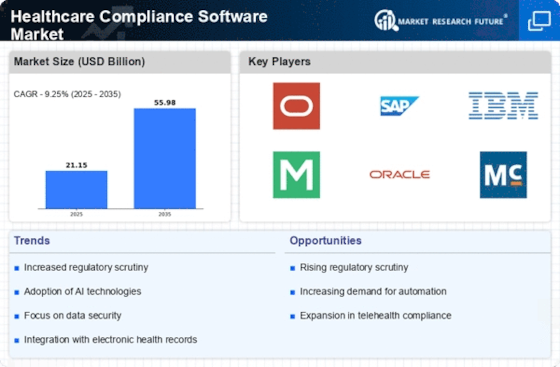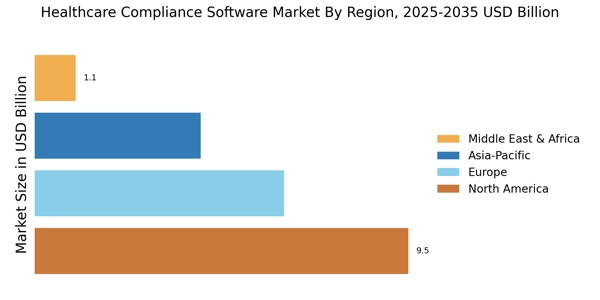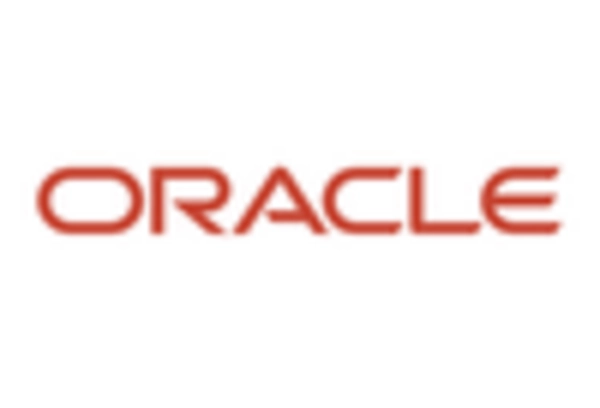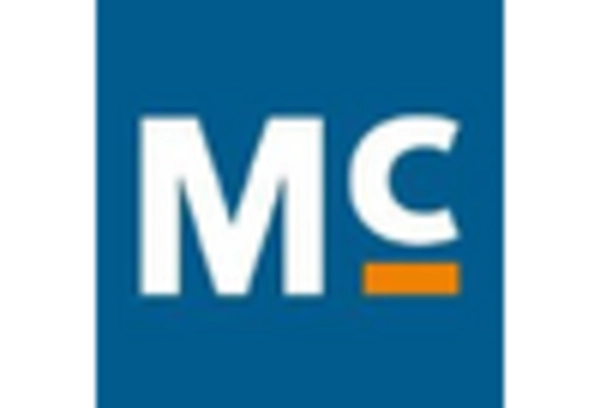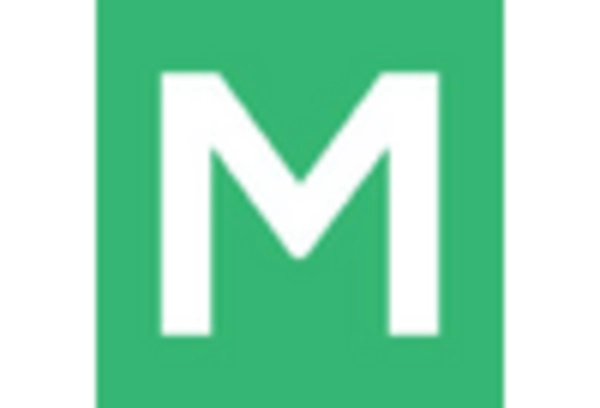Rising Cybersecurity Threats
The escalating threats to cybersecurity within the healthcare sector are driving the demand for compliance software solutions. As healthcare organizations increasingly digitize their operations, they become more vulnerable to data breaches and cyberattacks. The Healthcare Compliance Software Market is responding to this challenge by offering solutions that not only ensure compliance with regulations but also enhance data security. According to recent data, healthcare data breaches have surged, with millions of patient records compromised annually. This alarming trend underscores the necessity for healthcare organizations to invest in compliance software that integrates cybersecurity measures. By doing so, they can protect sensitive patient information while maintaining compliance with regulatory standards. Consequently, the Healthcare Compliance Software Market is likely to experience robust growth as organizations prioritize cybersecurity alongside compliance.
Adoption of Telehealth Services
The growing adoption of telehealth services is influencing the Healthcare Compliance Software Market. As healthcare providers increasingly offer remote services, the need for compliance with telehealth regulations becomes paramount. Compliance software solutions are being tailored to address the unique challenges posed by telehealth, including patient privacy and data security. The market is responding to this trend by developing software that ensures compliance with telehealth regulations while facilitating seamless service delivery. Recent statistics indicate that telehealth usage has surged, with millions of patients utilizing these services. This shift necessitates robust compliance solutions to navigate the regulatory landscape effectively. As a result, the Healthcare Compliance Software Market is likely to see increased demand for software that supports telehealth compliance, ensuring that providers can deliver care while adhering to necessary regulations.
Growing Demand for Data Analytics
The rising demand for data analytics in healthcare is driving innovation within the Healthcare Compliance Software Market. Organizations are increasingly leveraging data analytics to enhance compliance monitoring and reporting processes. Compliance software solutions that incorporate advanced analytics capabilities enable healthcare organizations to gain insights into their compliance status and identify potential risks. This trend is particularly relevant as healthcare organizations strive to improve operational efficiency and reduce costs. Data suggests that organizations utilizing analytics-driven compliance solutions experience improved compliance outcomes and reduced administrative burdens. As the industry continues to evolve, the Healthcare Compliance Software Market is expected to expand, with a focus on integrating data analytics into compliance software to meet the growing needs of healthcare organizations.
Increased Focus on Patient Safety
The heightened emphasis on patient safety is a significant driver for the Healthcare Compliance Software Market. Healthcare organizations are increasingly recognizing the importance of compliance in ensuring safe and effective patient care. Compliance software solutions are being developed to assist organizations in adhering to safety protocols and standards, thereby reducing the risk of medical errors and adverse events. The market is witnessing a shift towards solutions that not only facilitate compliance but also enhance overall patient safety outcomes. Data indicates that organizations utilizing compliance software report fewer incidents of non-compliance and improved patient safety metrics. This trend suggests that the Healthcare Compliance Software Market will continue to expand as organizations seek to align their compliance efforts with their commitment to patient safety.
Regulatory Compliance Requirements
The increasing complexity of regulatory compliance requirements is a primary driver for the Healthcare Compliance Software Market. Organizations are compelled to adhere to various regulations, such as HIPAA and HITECH, which necessitate robust compliance solutions. The demand for software that can streamline compliance processes and ensure adherence to these regulations is on the rise. In fact, the market for compliance software is projected to grow significantly, with estimates suggesting a compound annual growth rate of over 10% in the coming years. This growth is largely attributed to the need for healthcare organizations to mitigate risks associated with non-compliance, which can lead to substantial financial penalties and reputational damage. As such, the Healthcare Compliance Software Market is likely to see increased investment in compliance solutions that can effectively address these regulatory challenges.


